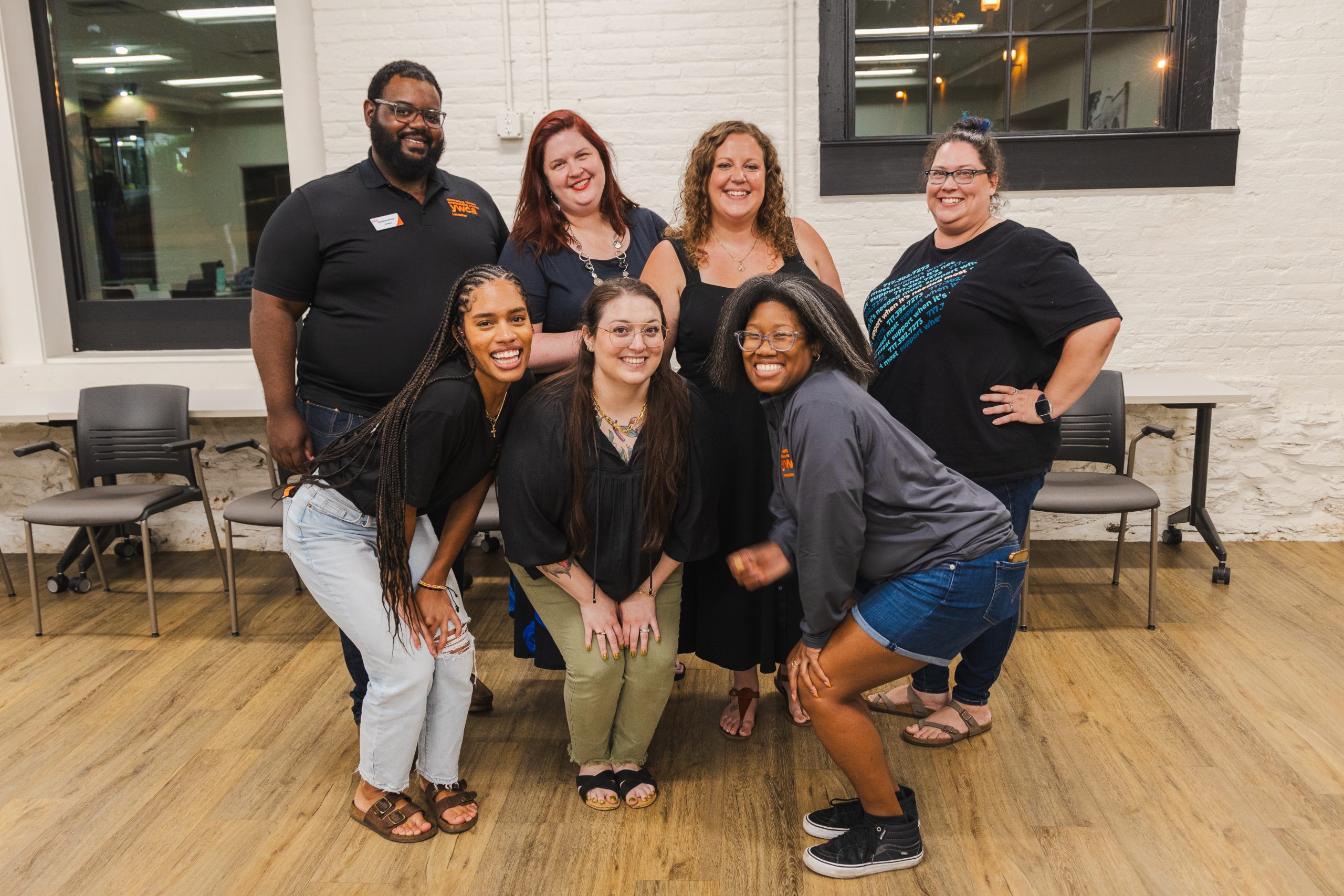YWCA Lancaster’s Childhood Trauma Care Conference hosted by the Sexual Assault Prevention and Counseling Center brought together over 150 professionals, advocates, and community members to explore innovative approaches and strategies for supporting individuals impacted by childhood trauma.
Our keynote speaker was the Commonwealth Victim Advocate of Pennsylvania, Suzanne Estrella from the Pennsylvania Office of Victim Advocate. In her opening session she shared information about growth and fostering a safe supportive space for children. If you yourself have not experienced childhood trauma, she said “then it can be difficult to really wrap your head around what that feels like to that child.”
Breakout sessions included topics such as: supporting LGBTQ+ youth, self-care for individuals in social service professions, learning the basics of ACEs, commercial exploitation of youth, and more. Professionals, advocates, and community members had the opportunity to hear from experts in their fields and really dive in to key topics around childhood trauma. While professionals and other attendees may be familiar with some of the topics presented, many were there to build a foundational understanding of childhood trauma. YWCA Lancaster CEO Stacie Blake shared that
“I think all of us are growing in our knowledge of trauma and the impacts of trauma, particularly on children.”

Understanding Childhood Trauma
Sessions took an insightful exploration of the various forms of childhood trauma and their long-term effects on mental health and well-being. Presenters delved into the latest research, shedding light on the importance of early intervention and creating trauma-informed spaces.
Trauma-Informed Practices
Speakers emphasized the need for trauma-informed practices in various settings, from schools and healthcare to community organizations. Workshops and discussions provided practical strategies for implementing these approaches, ensuring that professionals and advocates can create safe and supportive environments for children and adults alike.
Intersectionality and Trauma
A crucial aspect was addressing trauma through an intersectional lens. Presenters explored how factors such as race, gender, sexuality, and socioeconomic status intersect with trauma, acknowledging the unique challenges faced by individuals with multiple marginalized identities.
Building Resilience
A central focus of the conference was resilience-building strategies that promote healing and empowerment among trauma survivors. Speakers shared evidence-based approaches such as trauma-informed therapy, and mindfulness techniques emphasizing the importance of fostering strengths and protective factors in individuals’ journeys toward recovery.
Community Collaboration
Collaboration was a recurring theme throughout the conference, highlighting the essential role of community partnerships in addressing childhood trauma. A panel discussion featuring law enforcement officials and social service providers shed light on the importance of a collective commitment to creating trauma-responsive systems of support. YWCA Lancaster’s Sexual Assault Prevention and Counseling Center Director, Mandy Billman, stated that
“YWCA Lancaster is proud to partner and engage with local experts in their fields. The collaborations are crucial in supporting children through their trauma and keeping kids in Lancaster County safe.”

YWCA Lancaster’s Childhood Trauma Care Conference provided a safe space for dialogue, collaboration, and action in advancing trauma-informed care practices. By empowering individuals, fostering resilience, and promoting community collaboration, attendees left inspired and equipped to make meaningful contributions to the well-being of trauma survivors and their communities.
As we continue on this journey, let us remain committed to fostering a culture of empathy, empowerment, and growth in our collective efforts to address childhood trauma and promote healing for all.
Keep the movement growing
April is Sexual Assault Awareness Month! We have a lots of programming planned all month long to raise awareness, build community, and uplift survivors. Learn more below!
See photos from the event












































